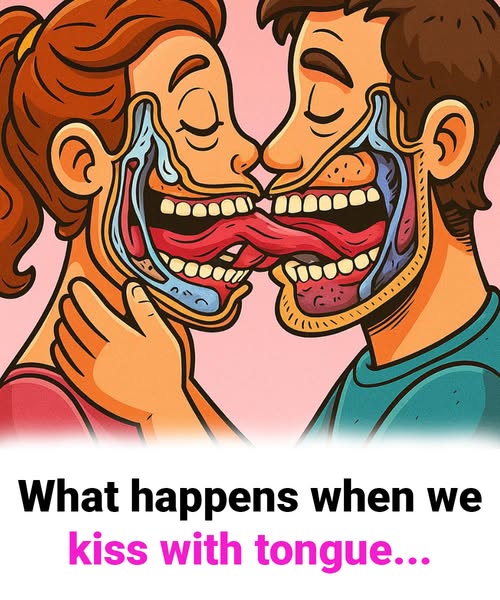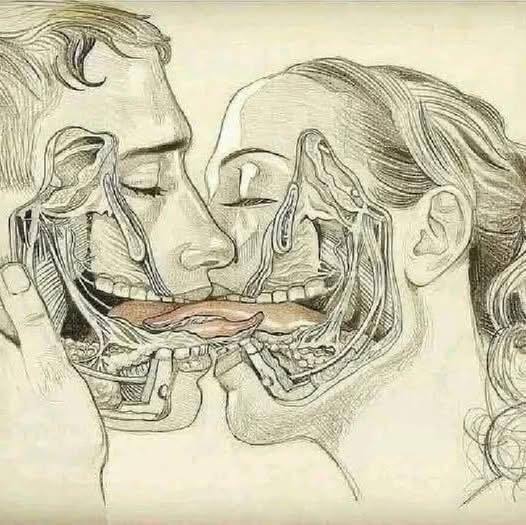This is what happens when you kiss with tongue…😮
That electric moment when a kiss deepens and tongues meet is more than romance—it’s biology in action. A French kiss is essentially a biochemical exchange where saliva, hormones, and brain signals communicate far more than words ever could.
One myth says kissing boosts immunity “like a vaccine.” In reality, partners transfer up to **80 million bacteria per second**, most harmless, but some linked to gum disease or oral herpes (which half of adults carry unknowingly). Another myth is that oxytocin—often called the “love hormone”—makes every kiss bonding. Science shows it spikes only with trusted partners, while **dopamine** is what drives the craving for more. And contrary to belief, tongue kissing isn’t universal: only **46% of cultures practice it**, making it more cultural than instinctive.
So what actually happens in just 10 seconds? First, saliva exchange tests a partner’s immune health. Next, pleasure centers in the brain light up while stress responses calm. Hormones like testosterone and cortisol shift, attraction rises, heart rate spikes, and the hippocampus locks in the memory—explaining why first kisses are unforgettable.
From an evolutionary lens, kissing works as a health “taste test,” checking genetic compatibility and signaling safety before words ever existed. Couples who kiss daily even report **lower divorce rates**, showing its lasting social role.
But kissing carries risks—oral herpes, microbiome imbalance, and stress if it’s not consensual. Practicing good dental care, using protection, and respecting body language all help keep it safe.
In the end, a kiss isn’t just passion—it’s a language of health, trust, and connection. Every kiss asks, without words: *“Are you safe? Are you mine?”*






Post Comment